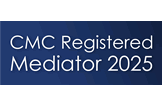
All About People
Need help to resolve your business, personal or employee conflicts & disputes?
Stay up to date with our latest news and workshops.

So instead of writing from Berlin, immersed in minimalist arpeggios and ritualistic choreography, I found myself dealing with cancellation emails, travel insurance forms, and hotel refund policies. It was frustrating—but also oddly reflective. Because, whether we’re talking about opera or workplace disputes, the same principle holds true: you need a Plan B.
This unexpected turn of events reminded me of something I regularly teach my university students. I often ask them, 'What’s your Plan B?'—only to be met with blank stares. The concept, so familiar to many of us, is surprisingly unknown to some. But it’s a key part of any effective conflict management strategy. Enter 'Collaborative Problem Solving', or CPS.
Originally developed for working with children with behavioural challenges, CPS—created by Dr. Ross Greene and further developed by Dr. Stuart Ablon—has evolved into a powerful method for navigating conflict in many settings, including the workplace. At its heart is the idea that people do well if they can. And if they can’t, it’s our job—not to punish or ignore—but to understand why, and then work together to find a solution.
The CPS framework offers three options:
• Plan A – impose your will
• Plan C – drop the expectation (for now)
• Plan B – engage collaboratively
Plan B is where the real magic happens: it’s about working with someone to solve a problem, rather than at them. As Cinnie Noble highlights in her article for CINERGY®, Plan B isn’t a fallback—it’s a thoughtful, prepared response to situations that don’t go according to script. I had the privilege of training with Cinnie, and her approach to Conflict Management Coaching continues to inform both my practice and my teaching.
So while I was unable to see Akhnaten live, I immersed myself in the reviews. Kosky’s production sounds mesmerising—ritualistic, minimalist, and visually spare, much like the repetitive but entrancing score. A fitting metaphor, really, for conflict work. Sometimes, we strip things back to essentials. We repeat the same questions, the same listening loops. We find beauty and transformation not in spectacle, but in precision and presence.
Life threw me a curveball this month. But I had a Plan B. And just like in mediation, sometimes that’s the start of something unexpectedly profound.
If this article has stimulated your thinking on conflict coaching, mediation, dispute resolution, or 'Collaborative Problem Solving', please contact me at geoffrey@allaboutpeople.uk.

Strategic Advice and Guidance for you and your organisation. Our accreditations:




Stay up to date with our latest news and workshops.